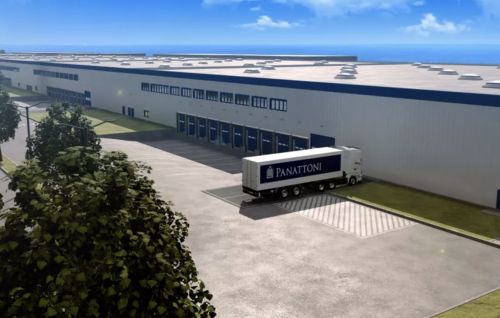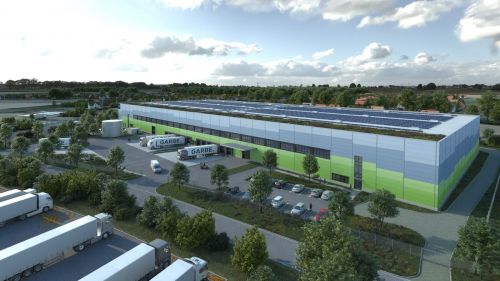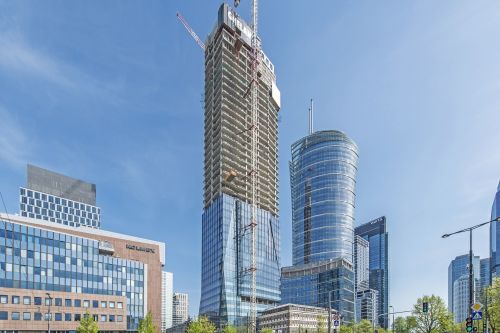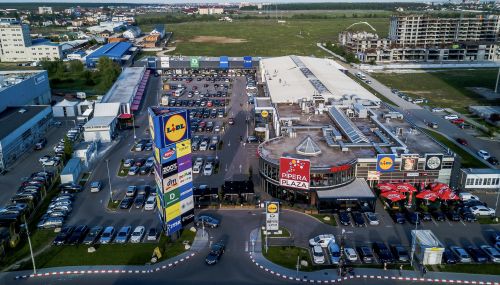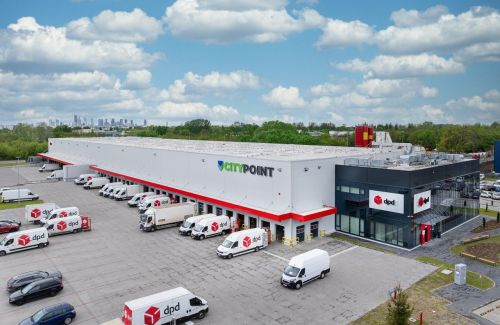A year that won’t come again?
Residential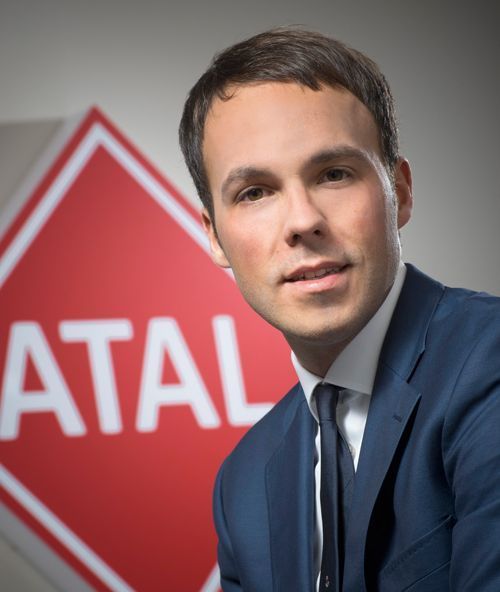
First place goes to . . .
Last year’s gold medallist was Dom Development (ranked third in 2016), which reported as early as in the very first days of January that the group had sold 3,975 apartments net in 2017 according to its preliminary data. Gdańsk-based developer Euro Styl, which Dom Development purchased in June 2017, was responsible for a considerable proportion of these results. “Euro Styl is a healthy and efficient company with a very good reputation on the TriCity market,” said Jarosław Szanajca, the president of the board of Dom Development at the time of the acquisition. Second place on the podium went to last year’s record holder, Murapol. Over 2017, the developer signed a total of 3,605 apartment sales contracts, the greatest number of which were for apartments in Warsaw, followed by Wrocław, Kraków and Poznań. “Our target for this year is to sign 3,500 apartment contracts,” says Nikodem Iskra, the CEO of Murapol. Robyg was also among the top three companies (having come second in 2016). In 2017 the group signed contracts on 3,470 apartments net (a y-o-y increase of 17 pct) with 1,862 sold in Gdańsk and 1,608 in Warsaw and as a result if beat its target for last year of 3,300 apartments with its highest ever sales result.
Indeed, all of the developers in the top five sold over 2,000 apartments each over the year. Atal signed contracts on 2,787 apartments (up by 14 pct y-o-y). The company sold the largest number in Kraków, followed by Warsaw, Wrocław, Łódź, Katowice, the TriCity and Poznań. “With the current economy, we can assume that the market will remain stable for the next few months. And as a result we are planning to extend our portfolio in all the cities where we operate,” claims Mateusz Juroszek, the vice-president of Atal. LC Corp is the final company in the top five, having found buyers for 2,029 units over the year. The company is one of three listed developers that had lower sales last year than in 2016, although this was only a slight drop of 3 pct y-o-y, which the developer claims largely resulted from its project scheduling.
Growth is everything
It is also worth mentioning those developers that might not have had dazzling sales figures but whose growth in sales was spectacular. In this regard Inpro of Gdańsk was the unquestionable leader over 2017 as it registered a y-o-y rise in sales of 90.5 pct (from 388 apartments sold in 2016 to 739 ). Lokum Deweloper of Wrocław came second with sales that were 63.1 pct improved from 645 in 2016 to 1,052 apartments. and third place went to I2 Development, which is also from Wrocław, with an increase of 60 pct, from 508 to 813 apartments. Increases of over 50 pct were also recorded by Echo Investment (54.3 pct) and Archicom (51.9 pct).
“The demand has been so high with such a solid base that analysts have begun to wonder if the supply will for the first time ever be able to keep up with it over the following months and not the other way around,” says Katarzyna Kuniewicz, the director of market research and analysis at Reas.
Despite another year having ended with developers popping champagne corks, the future of the residential market is not so certain. More and more analysts are talking of a slowdown, so 2018 may turn out to be the last year with such a spectacular bull market. The normal fall due to the cyclical nature of the market is expected soon with the phasing out of the Apartment for the Young programme as well as due to the decreasing availability of suitable development plots, the rising cost of general contractors, the squeeze on the labour market and new legal regulations that are unfavourable for developers.
“However, the development industry is not facing a crisis and a possible drop in the transaction volume that may be expected in the following years will not mean a return to the sales levels of 2008-2009,” claims Kazimierz Kirejczyk, the president of the board of Reas. “The market is more mature and developers are more responsive to changes in the environment. The level of sales is so high that even a clear slowdown will not jeopardise the operations of companies that are working at the same time on several projects in different locations and different market segments.











































